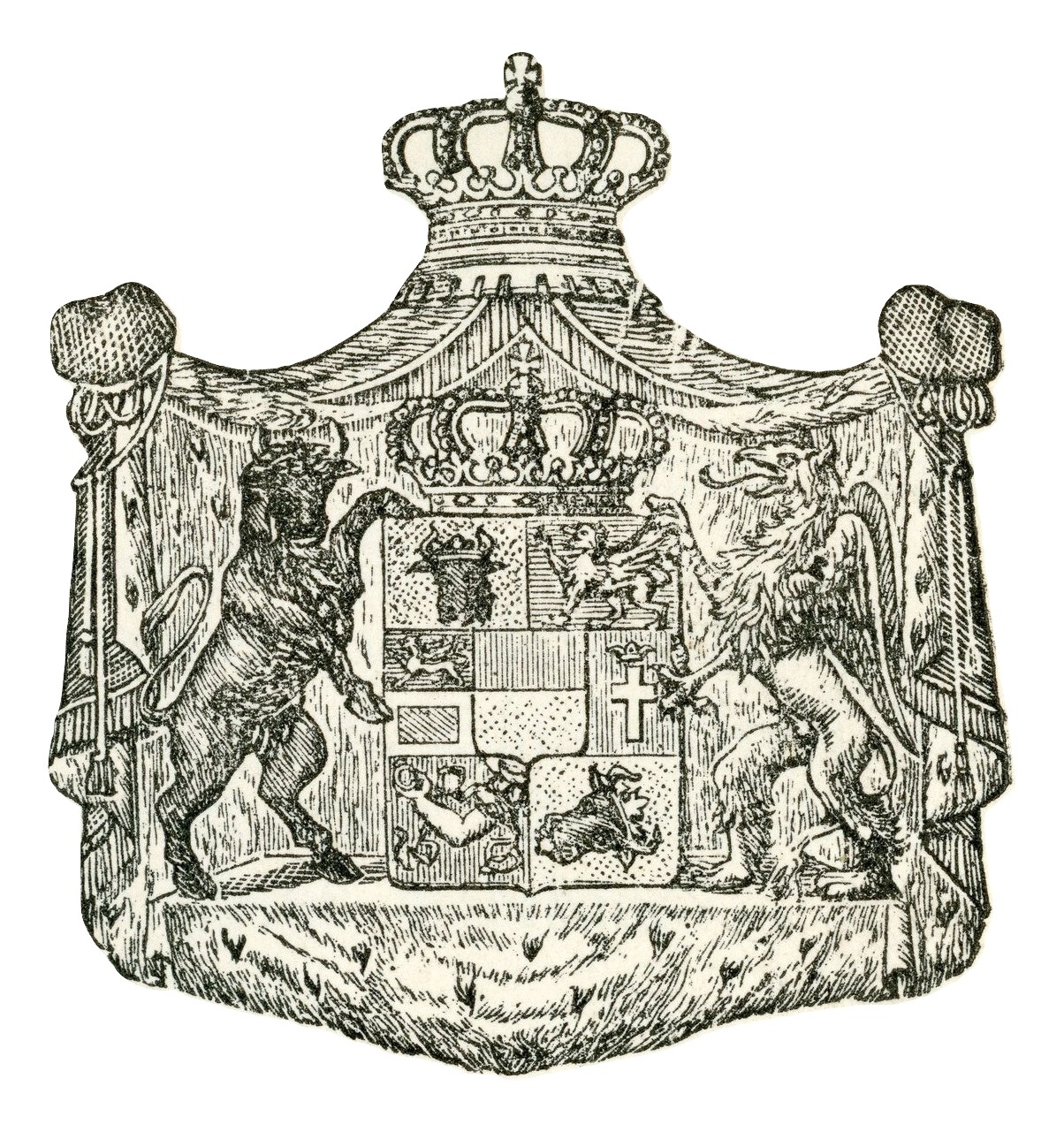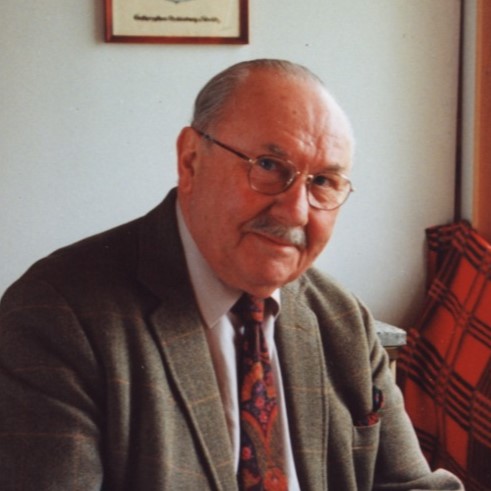His Highness Georg Alexander Andreas Carl Michael Peter Philip Ignatius Maria, Duke of Mecklenburg, Prince of Wenden, Schwerin and Ratzeburg, Count of Schwerin, Lord of the Lands of Rostock and Stargard was born on 27 August 1921 in Nice, France. He was the eldest child of Duke Georg and his first wife Duchess Irina. Due to the non-dynastic nature of his paternal grandparent’s marriage, at birth Georg Alexander bore the title Count of Carlow.
Early life in Mecklenburg
The son of two Russian refugees Count Georg Alexander spent the first year of his life at the Villa Maria on the Promenade des Anglais in Nice, France where a number of fellow Russian noble refugees had settled following their escape from persecution at the hands of the Bolsheviks. In 1922 the family moved into the Remplin Palace in Mecklenburg-Schwerin which was owned by Count Georg Alexander’s great uncle Duke Carl Michael, the head of the House of Mecklenburg-Strelitz.
The status of Count Georg Alexander changed on 11 September 1928 when his great uncle Duke Carl Michael adopted his nephew Count Georg, as well as his wife and children, making them his dynastic heirs, members of the House of Mecklenburg-Strelitz and Dukes/Duchesses of Mecklenburg. The now Duke Georg Alexander became heir apparent on 6 December 1934 upon the death of his great uncle and succession of his father as head of the House of Mecklenburg-Strelitz.
Duke Georg Alexander and his siblings received an Imperial Russian type of upbringing with the family having a Russian servant and employing English governesses and French tutors for the children. Drawing on his knowledge their father also ensured the children grew up knowing the history of late Imperial Russia. Both exiled from Russia the grand ducal and Russian imperial families remained close with the young Duke Georg Alexander and his father representing the family at the burial of the late Russian Emperor in exile, Grand Duke Kirill Vladimirovich, in Coburg in October 1938. However due to their Russian heritage and international connections the grand ducal family faced persecution from the Nazi government in Germany.
During the Second World War the family had to leave the Remplin Palace after it was largely destroyed during the night of 10 to 11 April 1940 in a fire instigated by the local Nazi Gauleiter, Friedrich Hildebrandt. Although the family lost most of their valuable possessions in the fire, symbolically Duke Georg Alexander managed to save two family coats of arms, using an axe to remove them from above the front door. After the loss of their Remplin home the family took up residence in a villa at 4 Nikisch Street in the Grunewald quarter of Berlin. However further misfortune befell the family in February 1944 when their villa was also lost, destroyed in an Allied bombing raid. Later that year Duke Georg Alexander was arrested by the Nazi secret police, the Gestapo, and was for a time interned in Stauffenberg Castle. After Duke Georg Alexander’s release and later that of his father, who had also been arrested, the whole family was reunited in March 1945 in Sigmaringen having been invited to the city by the Princess of Hohenzollern.
Marriage and family
In Sigmaringen Duke Georg Alexander met fellow displaced royal Archduchess Ilona of Austria. The couple became engaged and were married in the town in a civil wedding on 20 February 1946, this was followed by a religious wedding two months later on 30 April.
In the post war period with a return to Mecklenburg impossible due to the state having become part of the communist ruled East Germany, Duke Georg Alexander and his new wife remained in the West German state of Württemberg-Hohenzollern (later merged into a new state Baden-Württemberg).
Duke Georg Alexander and Duchess Ilona had four children together, Duchess Elisabeth Christina, born 1947, Duchess Marie Katharina, born 1949, Duchess Irene, born 1952 and a son and heir Duke Borwin, born 1956.
Education and career
Duke Georg Alexander studied law at the University of Freiburg and trained as a bank clerk. In 1963, with his wife and youngest child Duke Borwin, Duke Georg Alexander moved to Ireland in order to manage the Culleen House estate, near Mullingar in County Westmeath, for one of his brother-in-law Hassan Sayed Kamil’s Swiss businesses.
However, the family’s time in Ireland came to a sudden end in 1969 with the collapse his brother in law’s Swiss businesses with his assets taken over and sold by the state. The family therefore had to return to West Germany resettling in Baden-Württemberg. In 1970, Duke Georg Alexander took on a job with an advertising company where he spent the next two decades working.
On 17 December 1974, the marriage of Duke Georg Alexander and Duchess Ilona was dissolved by divorce. Following this Duke Georg Alexander and his unmarried children took up residence in the Biengen Palace near Bad-Krozingen.
Head of the house
Duke Georg Alexander succeeded as head of the House of Mecklenburg-Strelitz upon the death of his father on 6 July 1963, however with Mecklenburg being behind the Iron Curtain he was unable to play an active role in the state. All that changed with the fall of the Berlin wall and the reunification of Germany in 1989/1990 and in July 1991 Duke Georg Alexander became the first Mecklenburg duke since 1945 to reside in their homeland when he accepted an invitation from the local council in Mirow to take up residence on the Castle Island where he was provided with a bungalow, which like the other buildings on the island was in need of renovation.
However this was just to be a temporary residence as due to an agreement dating back to the end of the monarchy giving members of the grand ducal family the right to reside in part of the Mirow Palace it was intended, once restoration work could be carried out, for Duke Georg Alexander to be given private apartments on the third floor of a restored palace. A month after his arrival for the first time in over 50 years Duke Georg Alexander celebrated a birthday in Mecklenburg. His 70th birthday celebrations held on the Mirow Castle Island was attended by family, friends and various dignities including the Minister-President of Mecklenburg-Vorpommern.
With Mecklenburg-Strelitz now part of the state of Mecklenburg-Vorpommern and just emerging from communist rule, Duke Georg Alexander used his position to try and raise awareness of the separate identity and history of Mecklenburg-Strelitz and to promote the restoration of historic monuments in the state such as Mirow Palace and the other buildings on the Castle Island. He sought support for this from far and wide writing to the Mint Museum in Charlotte, North Carolina, which was named after Queen Charlotte of Great Britain who was born in Mirow, to see if there was an interest in helping with the restoration costs, which there turned out to be with a donation of $15,000 being sent in 1996. Duke Georg Alexander was also a supporter of the re-emergence of historic groups and was actively involved with the Fürstenberg Shooters Guild, presenting them with a certificate in June 1995 formally confirming its revival 230 years after it had first been established by decree of Duke Adolf Friedrich IV and three years after it had been re-established following its forced dissolution in 1945 by the communist authorities. After reunification he also opened restitution negotiations with the State of Mecklenburg-Vorpommern over the family’s legal claims dating back to the Nazi era when they had been subjected to state sponsored persecution.
Duke Georg Alexander died on 26 January 1996 aged 74 in his temporary home on the Mirow Castle Island shortly after witnessing the inauguration of the restored Mirow gatehouse, but without witnessing the completion of restoration work on the other buildings, such as the palace, which would be ongoing for many more years. On 3 February in what would be the first such burial there since Grand Duchess Elisabeth in 1933, Duke Georg Alexander was interned alongside his ancestors in the family crypt in the Church of St John on the Mirow Castle Island with members of the Fürstenberg Shooters Guild acting as pallbearers. He was succeeded as head of the House of Mecklenburg-Strelitz by his only son Duke Borwin.
Honours
- Head of the Mecklenburg-Strelitz House Order of the Wendish Crown (6 July 1963)
- Grand Cross with the Crown in Ore of the Mecklenburg-Strelitz House Order of the Wendish Crown
- Honour Cross 1st Class of the Princely House Order of Hohenzollern
- Knight of Honour and Devotion of the Sovereign Military Order of Malta
- Knight of the House Order of St Peter of Cetinje, Royal House of Montenegro
- Fritz Reuter Badge

